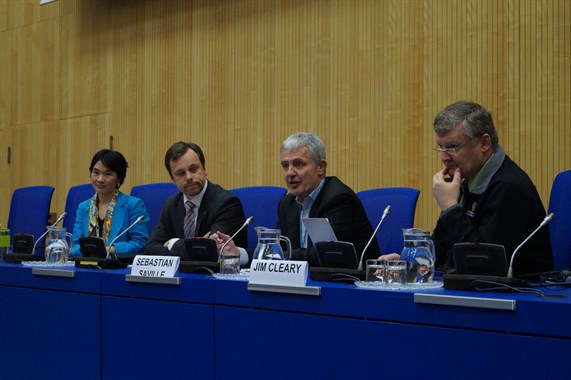Physicians demand global drug policy reform in UN meeting
Physicians without access to essential medicines can’t do that. We call on UN agencies to focus on supporting low income countries in order to ensure proper access to drugs for medicinal purposes.
21 Mar 2014More than 5 billion people, 83% of the world’s population, mostly in the lower and middle income countries, have low or no access to medicines such as morphine and methadone that are tightly controlled under international treaty law. Physicians around the world who have had enough of watching their patients suffer and die in severe pain are finally speaking out. They are now calling on the Commission on Narcotic Drugs (CND), the UN agency responsible for drug control, to demand better access to pain medicines for their patients.

For the first time, some CND member states are joining with international physician organisations and UN agencies to support this cause. Delegates from Australia, Switzerland, and India highlighted the “tragedy” of inadequate access to essential medicines in their national statements at the plenary session of the CND High Level Review of the world drug problem.
Switzerland said “we need to recognise their suffering as an unintended and unacceptable side-effect of drug control” and Australia cited the “moral imperative” of ensuring that all doctors be able to access medicines for their patients needing pain relief and opioid substitution therapy.
Over-emphasising enforcement and punishment of drug use rather than public health, drives the HIV and Hepatitis C epidemics while leaving millions of cancer and AIDS patients to suffer severe pain.
According to Dr. Judith Yates, Chair of the Board of International Doctors for Healthier Drug Policies, “We have a problem of inadequate access to opioid medicines in a significant number of lower income countries. This compromises medical ethics, which requires us, to cure sometimes, to relieve often, to comfort always. Physicians without access to essential medicines can’t do that. We call on UN agencies to focus on supporting low income countries in order to ensure proper access to drugs for medicinal purposes.”
Share this on: